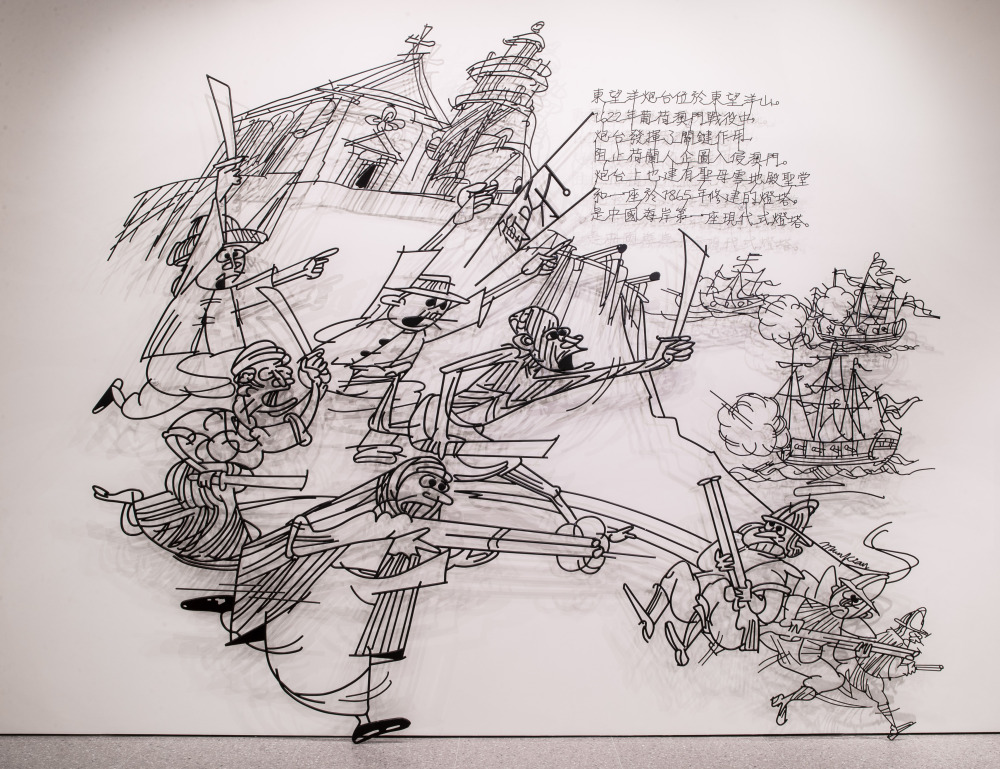

Special Exhibition of “Art Macao: Macao International Art Biennale 2021”
01
Warning
- MEDIA
- Welded Steel
- DIMENSION
- 3300H x 2800W
- YEAR
- 2021
CHILDREN'S AUDIO GUIDE
Children’s Audio Guide is only available in Cantonese & Mandarin
MACAU’S FIRECRACKER INDUSTRY:
A CENTURY’S HISTORY IN THE CITY’S DEVELOPMENT
Macao was once the world’s biggest producer of firecrackers and this industry is one of the most relevant and historically important to the city and its advancement. An industry that started in Mainland China as early as in the Tang Dynasty (618 – 907), it was first brought to Hong Kong and Macao, then throughout the rest of the world.
The first firecracker factories were authorised to start in Macao in 1881. By mid-century, the industry went on to become one of the pillar industries in Macao.
In the 1920s, because of the danger posed by the firecracker manufacturing process, a plot of land situated away from the city centre was designated where all these factories were to be located. However, these factories were again relocated to another restricted area, a place now known as Toi San district. And it was in 1925 that one of the deadliest fires in the city’s history happened, when a devastating explosion at one of the Toi San factories killed 150 workers and injured hundreds more. The accident resulted in the colonial government ordering these factories to again relocate these factories to Taipa, which became the centre for firecracker manufacturing, and allowing only the less dangerous finishing work in the manufacturing process to remain on the peninsula.
There were eight major firecracker factories (Kuong Heng Tai, Iec Long, Him Yuen, Kwong Yuen, Him Son, Tong Cheong, Hap Lei and Po Sing), all of which were founded and prospered from 1923 through to 1960. The industry provided employment for several thousand people at the time and produced millions of firecrackers each week. Entire families would work in various stages of the manufacturing process: tube-rolling, wrapping, sealing, clamping, braiding, packaging, printing, and packing. Two factories in particular were so prominent that they had their own pier at Macau Inner Harbour.
When China and Hong Kong banned manufacturing of firecrackers in the 1960s, the firecracker industry in Macao boomed. Local companies exported their products to countries around the world, and played a major role in Macao’s economic development. But when those bans were removed in China with the Chinese market re-opening to the world again in the 1970s, Macao found itself unable to compete. The last firecracker factory left standing in Macao, Iec Long Fireworks Company, finally closed its doors in 1984.










